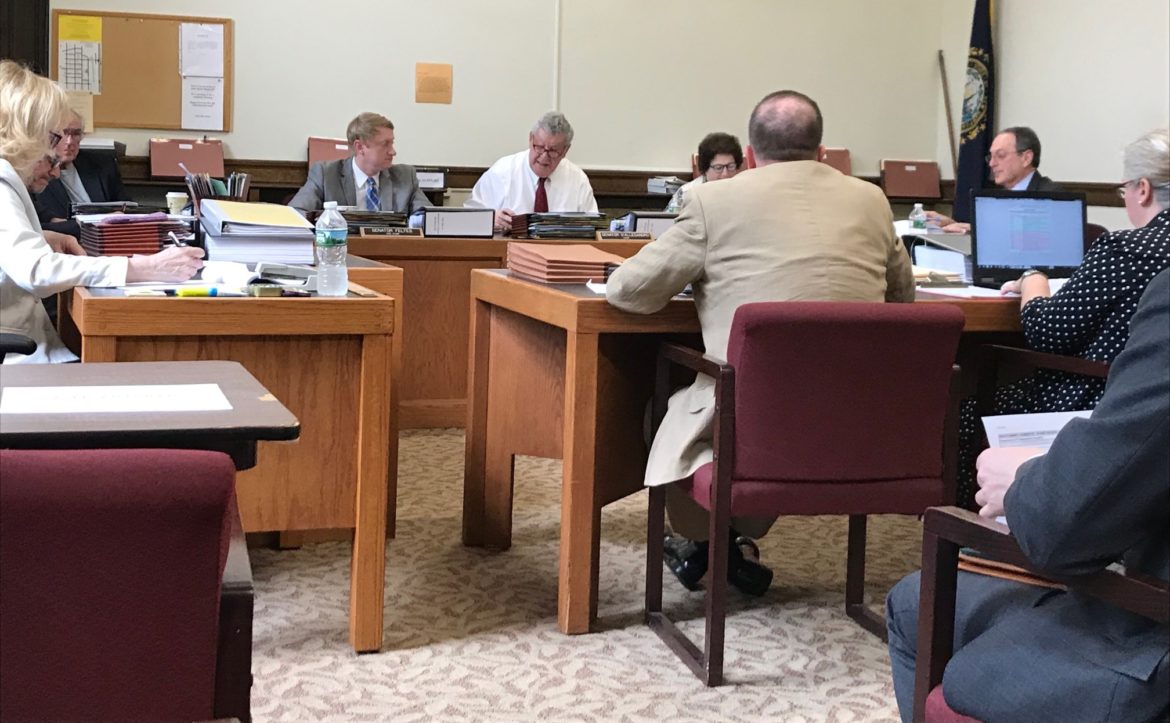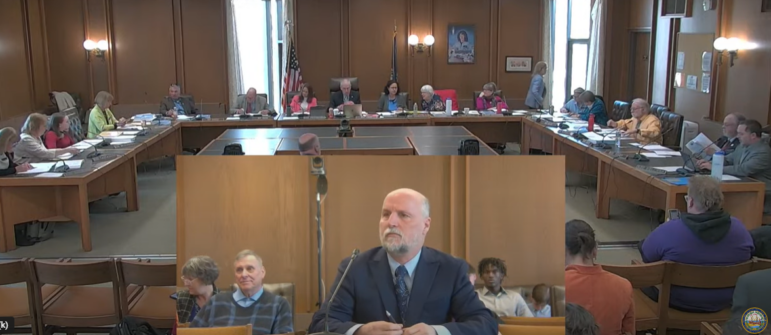By GARRY RAYNO, InDepthNH.org
CONCORD — The House Finance Committee declined to include a Gov. Chris Sununu-planned $27 million mental health facility in its proposed $12.9 billion budget because committee members lacked details.
On Monday, the Senate Finance Committee may have had a little more detail, but grappled with how large a facility to build, for what purposes and the costs of construction and ongoing operations.
While committee members sought greater detail about the project, which chair Sen. Lou D’Allesandro, D-Manchester, said they want in their proposed budget, state administrative services and Health and Human Services officials repeatedly sought greater guidance from lawmakers before refining the estimated costs and design.
The project was one of the major friction points between the governor and the democratically controlled House when it approved its recommended budget for the next two years.
Initially, the new 40-bed facility was sold as a way of closing the long-controversial Secure Psychiatric Unit at the New Hampshire Prison for Men in Concord. That unit houses civilly committed patients from the New Hampshire Hospital who are a danger to themselves or others, people who have been deemed not guilty by reason of insanity, incompetent to stand trial and mentally ill prison inmates.
Currently there are 26 or 27 patients at the facility, but a yearly average is closer 20, Health and Human Services Commissioner Jeffrey Meyers told committee members Monday.
But since it was first proposed, possible uses for the facility have increased to include patients in mental health crisis currently waiting in hospital emergency rooms, community mental health support beds, and transitional beds for those leaving the hospital.
Under all the scenarios, patients under 18 years old would move from the hospital off Clinton Street in Concord to a separate facility.
Forensic patients in the New Hampshire Hospital would also be moved to the new facility which would be near the current hospital.
Committee member Sen. Cindy Rosenwald, D-Nashua, said moving the young people out of the state hospital has been discussed for months to free space at the facility.
Meyers said that is one reason, but the other is to be able to provide the right care to the right population to provide better services.
He and others said the number of programs at the new facility will influence the building’s construction and operating costs.
Senators voted last month to approve a new facility and have the Senate Finance Committee work out the details.
Administrative Services Commissioner Charlie Arlinghaus presented what he called sketch estimates of different uses for the facility but emphasized that they were extremely preliminary at best.
The estimates ranged from a low of $7.5 million for renovating existing spaces to nearly $50 million for a 100-bed facility.
Some of the committee members wondered how square footage space per patient was determined because it was well below the national average for a forensic hospital.
Tim Smith, an architect in the administrative services public works division, said they looked at other facilities around the country including some with less than 800 square feet per patient and others with 2,500 square feet and “pulled it out of the air.”
But Arlinghaus said it took into consideration the size of new facilities in Montana and Arizona and he believes the estimate of an 100-bed facility costing about $45 million was in the ball park.
But committee vice chair Dan Feltes, D-Concord, wondered if the 800 square-foot space would be enough for the facility to be accredited, and D’Allesandro said the state hospital lost its accreditation once and did not want to go through that again.
Feltes asked the two agencies to produce estimates for a facility with 20, 30, and 40 beds.
Sen. Jay Kahn, D-Keene, said he found the conversation “a little confusing” about what is being proposed.
“I want this thing to be clear to everybody at this table,”
D’Allesandro said. “This is a lot of money and a lot of significant decisions.”
He noted 10
years ago lawmakers agreed to allow children to be placed at the hospital,
which was the wrong thing to do and now they need to correct that decision.
D’Allesandro said the committee needs to have basic estimates for facilities with 20, 30 and 40 beds, what the square footage would be and basic operating cost estimates. “There are going to be ongoing costs to future (operating) budgets,” he said.
D’Allesandro also sought information about where the facility would be built and renovation costs.
And he said the committee needs the work by the end of the week, noting they are coming up against deadlines to finish work on the Senate budget proposal.
The Senate Finance Committee meets again at 1 p.m. Tuesday and at 9:30 a.m. Friday as members work to finalize a budget plan by the June 6 deadline for Senate action on all bills.
Garry Rayno may be reached at garry.rayno@yahoo.com





